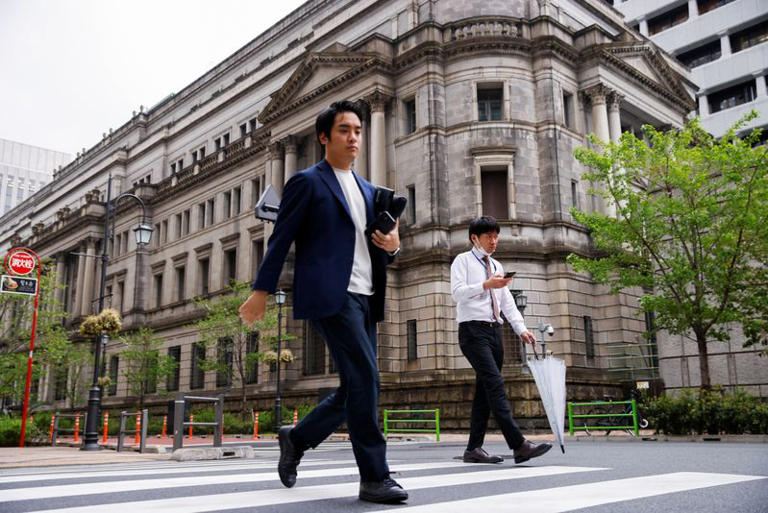The Bank of Japan (BOJ) is poised to maintain its current interest rates at its upcoming policy-setting meeting at the end of July. This decision aligns with the views of more than three-quarters of economists surveyed in a recent Reuters poll. Instead of raising rates, the BOJ is expected to focus on scaling back its extensive bond purchase program. This approach reflects the central bank’s ongoing struggle to support a tepid economic recovery while addressing the yen’s sharp depreciation.
Poll Insights: The Reuters poll, conducted between July 10 and 18, reveals that 28 out of 37 economists forecast the BOJ will not alter its interest rates this month. This marks a shift from last month’s poll, which had a higher proportion of economists expecting a rate change in July. The poll now shows a preference for potential rate hikes later in the year, with October emerging as the most likely month for such an adjustment, as cited by 43% of respondents. September is also a possible timeframe, according to 30% of the surveyed economists, while 24% still consider July a potential option.
The BOJ’s current policy, which raised the key interest rate to a range of 0%-0.1% in March from a previous negative rate of -0.1%, has been a subject of ongoing debate. The central bank’s decision-making is complicated by the need to balance economic support with the yen’s decline and inflationary pressures.
Economic Context and Challenges: The BOJ faces a multifaceted challenge. Rapidly raising interest rates could undermine Japan’s already fragile economic recovery. The economy is grappling with weak consumption and businesses are reluctant to pass increased costs onto consumers. Harumi Taguchi, a principal economist at S&P Global Market Intelligence, highlights that the BOJ is likely to avoid a hasty rate hike to prevent potential damage to economic stability and consumer spending.
Despite these concerns, the yen has fallen sharply, losing about 10% of its value since the beginning of the year. This depreciation has raised import costs and contributed to inflationary pressures. However, BOJ Governor Kazuo Ueda has previously indicated that the bank is not ruling out a rate hike this month, though the current economic indicators suggest a cautious approach.
Political and Economic Influences: The timing of the BOJ’s rate decisions may also be influenced by political factors. The upcoming Liberal Democratic Party’s presidential contest in September could impact the central bank’s policy choices. Masato Koike, a senior economist at Sompo Institute Plus, suggests that the BOJ may prefer to delay any rate hikes until after this political event to avoid additional uncertainty.
Bond Purchase Program and Future Outlook: In addition to interest rates, the BOJ is expected to announce details of its bond tapering plan at the July meeting. The plan involves reducing monthly bond purchases from approximately 6 trillion yen ($32 billion) to around 5 trillion yen. This step is part of a broader strategy to normalize monetary policy while managing the economic impact of an excessively large balance sheet, which now exceeds 1.3 times Japan’s GDP.
Economists predict that by July 2026, the BOJ will further reduce its bond purchases to about 3 trillion yen. This gradual tapering is intended to ease the central bank’s market interventions while still providing some support to the economy.
Conclusion: The BOJ’s anticipated decision to hold interest rates steady while scaling back its bond purchases reflects its balancing act between supporting Japan’s fragile economic recovery and managing the yen’s decline. The central bank’s strategy aims to provide stability without exacerbating economic weaknesses. As the global economic landscape remains uncertain, with potential impacts from U.S. Federal Reserve policies and domestic political developments, the BOJ’s decisions in the coming months will be crucial in shaping Japan’s economic trajectory.
